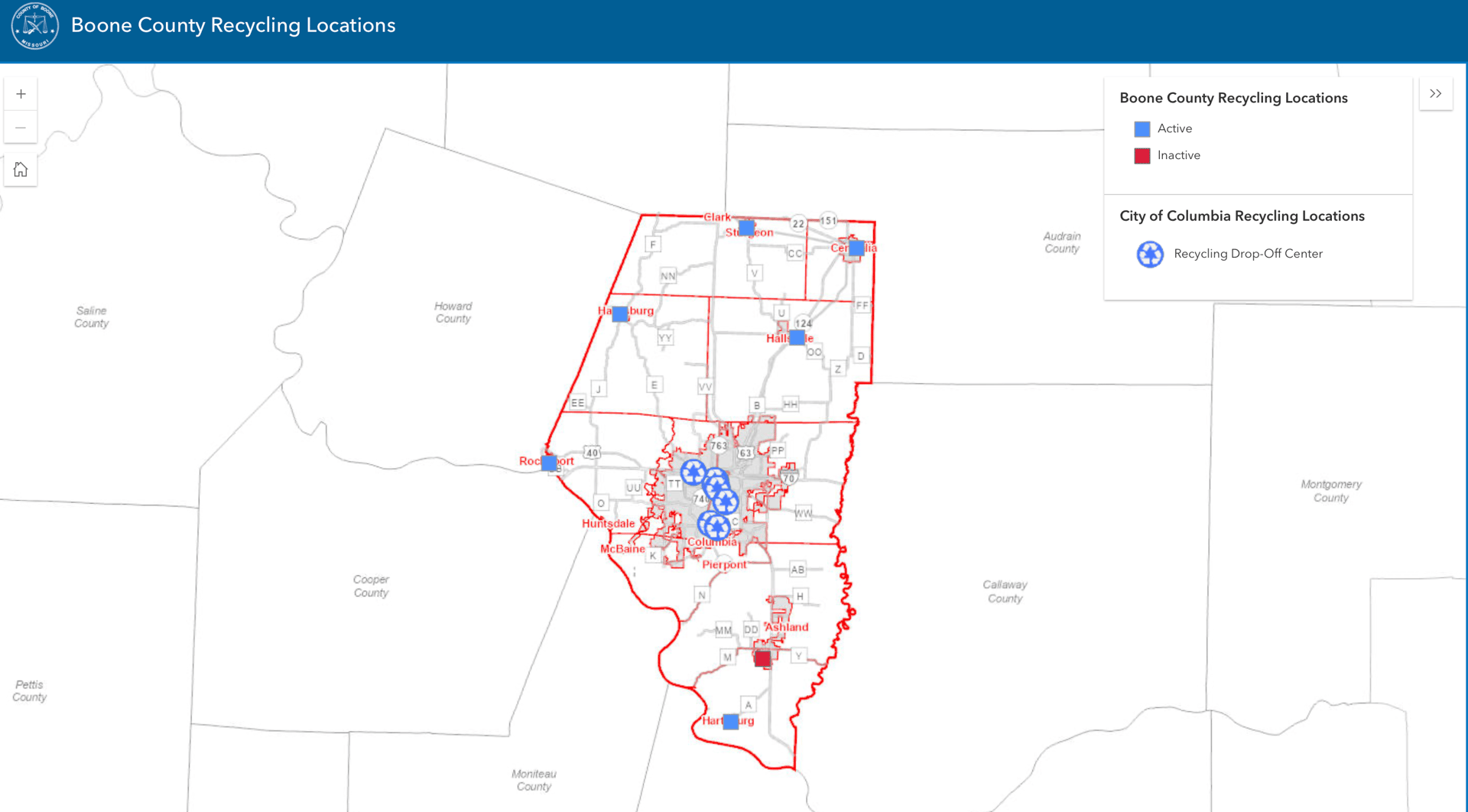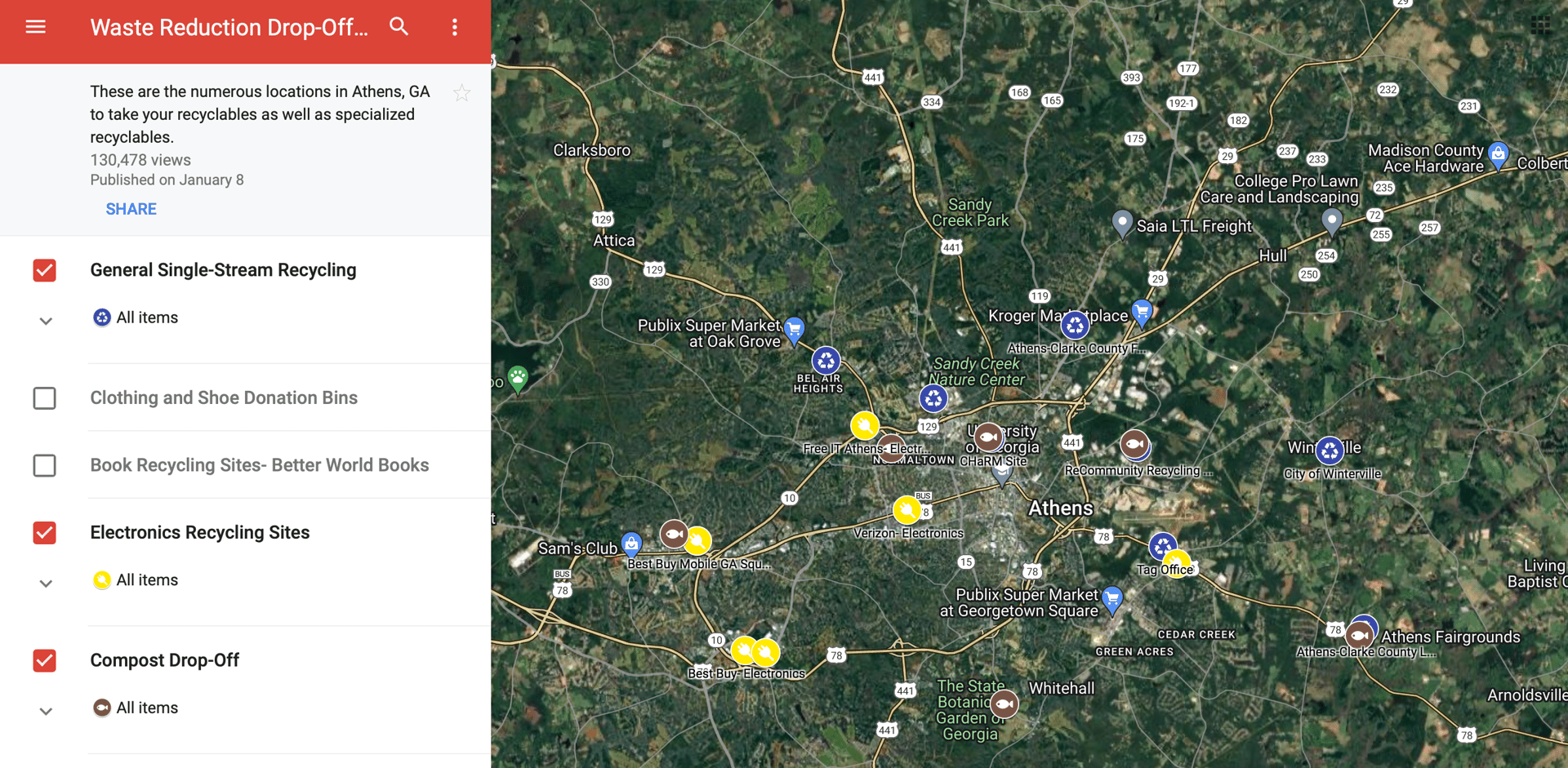



Recycling in Columbia, Missouri
By Carson Hanover
Why is recycling important to our ecosystem and future?
Introduction
Recycling is vital for preserving our environment and conserving valuable resources. By recycling materials like paper, glass, plastic, and metal, we reduce the strain on natural ecosystems and minimize pollution from extraction and manufacturing processes. Recycling also plays a crucial role in reducing energy consumption and greenhouse gas emissions associated with producing new goods. Additionally, recycling helps to alleviate the burden on landfills, which are rapidly reaching capacity in many regions. Embracing recycling as a societal norm not only fosters a more sustainable way of life but also empowers individuals to actively contribute to the health of our planet for future generations.
Columbia suspended curbside recycling pickup in May 2023, because of "ongoing staff shortages." It promised the service would return by late June, but extended the pause indefinitely. In December of 2023, a lawsuit was filed against the city for reportedly failing to provide curbside recycling pickup but continuing to charge for it. The city responded to the suit in February, denying it broke a contract with residents. It claims trash collection is not a service offered to residents. Rather, residents are "required to receive refuse service."
In March of 2024, recycling pickup services returned to Columbia. There are two collection routes, which are the same as before the service hiatus. The City of Columbia runs an online portal where residents can enter their address to find out which route they are on. You can click here to access that portal.
Also in March, Columbia began trash collection pickup using roll carts after more than ten years of discussion. previous Columbia Missourian reporting says conversations about about implementing recycling roll carts have already begun. Columbia City Council members discussed a consultants report on the city's recycling program with Director of Utilities Dave Sorrell in January.
In addition to its recycling pickup services, Columbia has multiple recycling drop-off locations in the area where residents can take bags of recycling.
What does recycling look like in Columbia?
Recycling isn't prioritized.
Recycling on your own is hard.
Taylor Jackson is a University of Missouri student who lives in the East Campus neighborhood near the school. She says "There is no recycling on East Campus right now. They tell you that if you have recycling then you need to drive it to a local collection spot." She estimates that at least 20 percent of her garbage could be recycled, and wishes her neighborhood had recycling services like others do in Columbia.
Emma Schnitzius is another University of Missouri student who lives in an apartment building says she has no access to recycling services. If she wants to recycle, "I would have to drive miles away to a recycling center where I would then sort through my recycling. This is difficult to manage- as I have to carry anything I want to recycle down the block to my car." She adds that even if her apartment doesn't offer recycling services, the least they could do is put recycling bins or dumpsters outside the building, especially for move-in and move-out days.
What students are saying

How does Columbia compare?
The two closest SEC schools to Columbia in terms of population are Athens, Georgia and College Station, Texas.

Athens, Georgia
Athens has many recycling drop off locations, as well as dedicated locations for electronics recycling and compost drop-off.
However, the city collects recycling on a bi-weekly basis, citing lack of recycleable material it recieves each year as being too small to run weekly pickups.
Per their website, The City of College Station provides all Solid Waste Services to the residents and businesses of College Station. The city does not maintain a recycling drop-off location.
College Station, Texas


Overall, Columbia has fewer drop off locations than Athens, and serves fewer of its residents than College Station.
While there are many ways that cities can improve in their recycling infrastructure, a great number of those potential solutions are difficult to implement. One program in Columbia that encourages sustainability and recycling is Extended Producer Responsibility. The program provides a way to recycle items that can't go into the normal recycleables pool, such as car batteries. " The Sustainability Manager for the City of Columbia Eric Hempel says the project is an often overlooked aspect of recycling, but something that can have a big impact.
"The project can help prevent toxic waste from entering the environment.," Hempel says. " And it also just helps reduce the overall impact of making a new battery."
Hempel says that in addition to car batteries, Columbia offers Extended Producer Responsibility programs for pharmaceuticals and paint. He mentions that increasing awareness of these programs could help people who are confused about how to dispose of these materials and don't realize that they can be recycled.
Hempel also mentions his desire to expand the program to mirror other initiatives that are more expansive.
"In Europe, there's a lot more traction, and it goes as far as packaging, because, right now, who bears the cost of trying to recycle all of the Amazon boxes?" Hempel says. "It's not Amazon, it's the City of Columbia."
Hempel also stresses the importance of repair services. He says that often times it's easier to repair things than to buy them brand new again. He mentions The Office of Sustainability has held "fix-it fairs" in the past.
"[Fix-it fairs] help people understand ways that they can either identify people that help them repair things, how things can, be repaired, what things can be easily repaired, and what to look out for," Hempel says.
To learn more about sustainability and recycling in Columbia, you can visit their homepage.
What sustainability programs exist in Columbia?
https://www.como.gov/contacts/recycling-drop-off-centers/
https://www.como.gov/contacts/?department=utilities
https://www.como.gov/utilities/columbias-solid-waste-utility/single-family-home-trash-and-recycling/
https://www.como.gov/utilities/columbias-solid-waste-utility/
https://www.showmeboone.com/resource-management/solid-waste-recycling.asp
https://gis.gocolumbiamo.com/recycling/
https://beheard.como.gov/customer-input-on-the-future-of-the-city-recycling-system